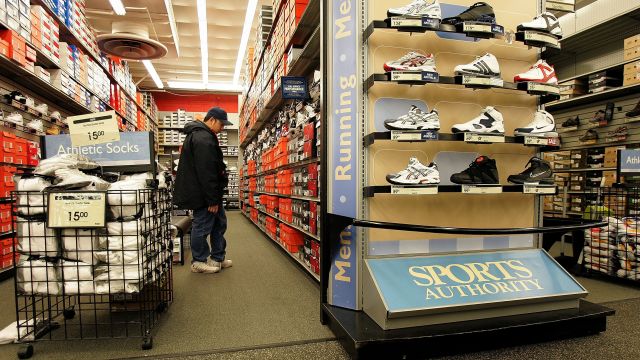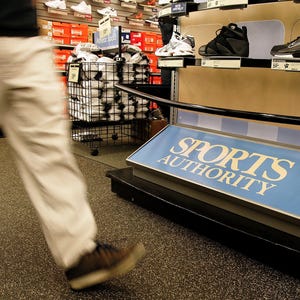Sports Authority’s going-out-of-business sale to begin – USA TODAY

Sports Authority announced it will close or sell 140 stores. It’s rumored Dick’s Sporting Goods could buy some of those locations.
Video provided by Newsy
Newslook
Sports Authority, in planning to close all of its stores, plans to launch its going-out-of-business sales this week, according to court documents.
In shutting down, the 463-store chain becomes the latest casualty among rivals for the sporting-good business. It follows the recently announced closure of the Sports Chalet chain, based on the West Coast. While sporting goods and athletic wear sales are growing, traditional retailers like the two chains have been hurt by competition from online.
Sports Authority expects its final sales to start Friday and last through the end of August before it is able to clear out all remaining merchandise, the documents state.
The big-box chain, which filed for bankruptcy protection less than three months ago, has initially planned to try to sell or close about a third of its retail sites in order to strengthen and streamline its operations. But the retailer, based in Englewood, Colo., added that if attempts to restructure its debt failed, it might close all of its stores.
The Sports Authority closings come on the heels of another athletic goods retailer, Sport Chalet, taking similar action. The chain stopped online transactions and began closing sales at its nearly 50 stores in April.
Sports Authority, which was owned by the Los Angeles-based private equity firm Leonard Green & Partners, has said that it was hampered by $1.1 billion in debt, and was late in picking up on shifting consumer trends.
But the growing number of consumers doing their shopping online has roiled brick and mortar retailers across the board, whether they sell t-shirts or tennis rackets. And Sports Authority has acknowledged that online competition played a key role in its demise.
“It’s a hypercompetitive industry,’’ says Katie Nemec, spokeswoman for the National Sporting Goods Association, who added that online retailers who don’t have to tack sales tax onto merchandise get “an unfair advantage . . . If that company is in a state where they don’t have to charge it, we see it almost as a discount to the consumer.’’
The amount of athletic and sport equipment sales made online grew to 15.8% last year from 11.8% in 2010, according to the National Sporting Goods Association. Online sales of athletic and sport footwear, increased to 17.2% of all such sales last year, from 12.8% in 2010.
Still, it’s not just sporting goods sellers that are struggling. “It seems like every retail industry is dealing with its own set of challenges,’’ Nemec says. “I certainly don’t think the sporting goods industry is the only one.’’




